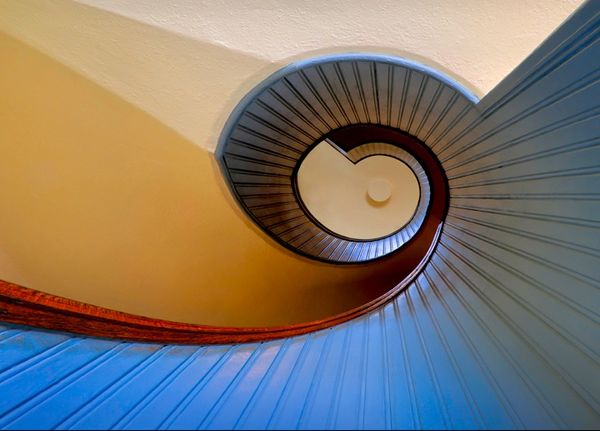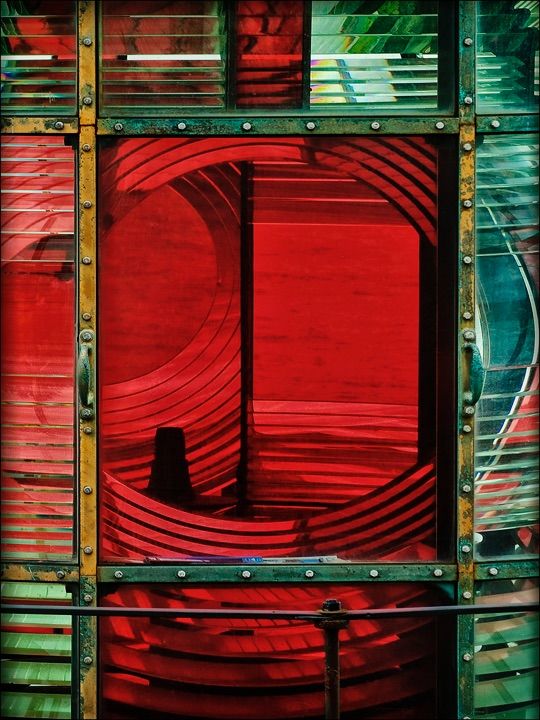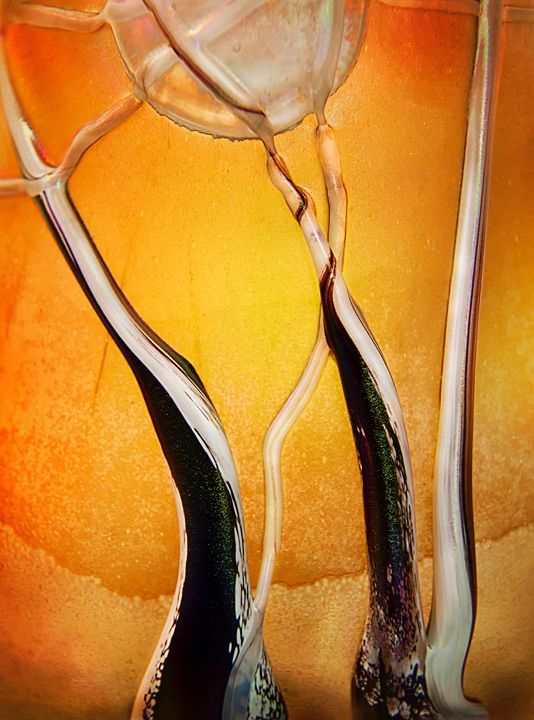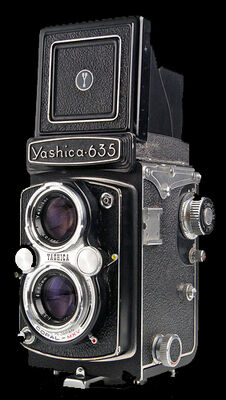What do people mean by composition?
Mar 14, 2020 12:07:18 #
selmslie wrote:
Other than an arranged still life, there is rarely... (show quote)
I’m sure this fits a number of photographers but I’m not sure if it is true of the majority. I can say with certainty that mindfully considering the specifics of a composition is my normal routine, as it is for the other photographers I often shoot with. It is not uncommon for any of us to spent ten, fifteen, twenty minutes “massaging” a particular composition. Possibly, the amount of attention one applied to building a strong composition is one of the factors that separates “good” photographers from mediocre ones. ?
Mar 14, 2020 12:13:09 #
Photographer Jim wrote:
I’m sure this fits a number of photographers but I... (show quote)
I agree wholeheartedly. But I think for some of us who have been doing this for a very long time, myself for 47 years
 , determinations about composition almost come automatically. As soon as I see a scene that I am interested in photographing, I am immediately thinking, vertical or horizontal, rule of thirds or centered, etc. But I still use my cards, mentioned in a previous post, to explore alternate possibilities sometimes. For me at least, and I am sure for many other people here, it just comes naturally from many years of experience of finding what works and what does not. None of us are perfect and still sometimes make images that we wish we had done things differently when we sit down to actually work the image in post, but that is still just part of the learning process. And the day when you think you have learned all there is to know about photography is the day you should sell all of your gear and go do something else.
, determinations about composition almost come automatically. As soon as I see a scene that I am interested in photographing, I am immediately thinking, vertical or horizontal, rule of thirds or centered, etc. But I still use my cards, mentioned in a previous post, to explore alternate possibilities sometimes. For me at least, and I am sure for many other people here, it just comes naturally from many years of experience of finding what works and what does not. None of us are perfect and still sometimes make images that we wish we had done things differently when we sit down to actually work the image in post, but that is still just part of the learning process. And the day when you think you have learned all there is to know about photography is the day you should sell all of your gear and go do something else.Mar 14, 2020 12:16:46 #
SMPhotography wrote:
So are you saying his content was good but his composition sucked? 







Mar 14, 2020 12:16:54 #
Linda From Maine wrote:
Sorry for helping lead the charge down the alterna... (show quote)
Good question, Linda. Points to the difficulty of addressing complex subjects with just a few words.
If someone suggests you read a certain book you might well respond "what's it about?" Yes, speaking of a photo you might well describe the content as "flowers, bird, kid, tree, building". But content can also be light, abstract shapes, blocks of color, depicted emotions, etc. In other words, what's it about? So I don't necessarily understand your perceived difference between describing a book's and a picture's content.
If somebody has you look at a picture and asks "what do you see?" how would you respond? I just thought of standing in front of Picasso's Guernica (I haven't!) and being asked to describe the content....Without knowing the background (Spanish Civil War) I might be hard pressed to come up with intelligent comments. But for sure I wouldn't start talking about composition first!

I think I'm rambling again, time for a break!
Mar 14, 2020 12:21:41 #
srt101fan wrote:
Good question, Linda. Points to the difficulty of... (show quote)
This is the problem with so many areas of artistic expression. You are not really dealing with "black and white" (no pun intended) concepts but with an infinite range of shades of gray.
Mar 14, 2020 12:26:10 #
srt101fan wrote:
Thank you to those that addressed the topic direct... (show quote)
I have the opposite bias. I consider content to be somewhat infinite. Everything from the most sublime natural scene to the most mundane object can be valid content for a photograph. But in the end, how the photographer manages the composition will determine how effective the final image is. An image of Incredibly beautiful subject matter can be ruined by means of poorly thought out composition. Likewise, photos of normally mundane, “boring” subjects can yield visually stunning images that are composed well.
Mar 14, 2020 12:28:44 #
Mar 14, 2020 12:36:06 #
You and; photographerjim echo my sentiments ..., that being said .., it doesn’t answer the question “what do people mean by composition” why do we need it and when to apply the rules .., and most important when/ to break the rules ..,
In simple aircraft I have known and flown for years .., I don’t use a check list ...I know what to set and what switches to click and where to set the flaps ..., I take off and know the horizon ..everything is an automatically learned procedure .. however , on performance and multi engine aircraft .., I religiously follow a check list and sometime check it twice ..
This discussion was IMHO a valuable lesson for some and the included references to articles and picture examples were well done and a reset button for a lot of us ...
Most important , The topic matter brought out the heartbeat of this forum .., you all brought it alive with an interesting resuscitation topic and the reason I enjoy being part of it ..Bump ..Bump.., Bump Bump ...
In simple aircraft I have known and flown for years .., I don’t use a check list ...I know what to set and what switches to click and where to set the flaps ..., I take off and know the horizon ..everything is an automatically learned procedure .. however , on performance and multi engine aircraft .., I religiously follow a check list and sometime check it twice ..
This discussion was IMHO a valuable lesson for some and the included references to articles and picture examples were well done and a reset button for a lot of us ...
Most important , The topic matter brought out the heartbeat of this forum .., you all brought it alive with an interesting resuscitation topic and the reason I enjoy being part of it ..Bump ..Bump.., Bump Bump ...
Mar 14, 2020 12:50:35 #
srt101fan wrote:
No, I wouldn't describe the "content" as flower or bird, I would describe the "subject" as flower or bird ... speaking of a photo you might well describe the content as "flowers, bird, kid, tree, building". But content can also be light, abstract shapes, blocks of color, depicted emotions, etc. In other words, what's it about? So I don't necessarily understand your perceived difference between describing a book's and a picture's content...
 I'm differentiating between the definitions of subject and content and you are using them interchangeably. In my earlier photo (here), the subject is hops growing apparatus after harvest. But the content (what it is about) is hopefully something totally different.
I'm differentiating between the definitions of subject and content and you are using them interchangeably. In my earlier photo (here), the subject is hops growing apparatus after harvest. But the content (what it is about) is hopefully something totally different.Books - or movies - now that's another interesting side path. I know I have replied to the question, "What is it about?" with both a quick synopsis of plot, and then qualifying with a statement such as, "But that's not really what it is about".
Thanks for helping dust off the gray cells this morning and for keeping my mind off the latest coronavirus test results in Washington State!
Mar 14, 2020 13:15:44 #
Linda From Maine wrote:
Your examples are what I'd call "content" - the "what is it about" line. I guess we're getting bogged down in semantics now, or was it the OP that led us here? 😊
So, it is a bunch of colored dots in the end, but our mind strives to see people and animals especially strongly, identifiable objects somewhat strongly, but also shapes and forms, patterns, colors, textures, contrasts, all in relationships adding up to 'meaning.' What's it all about, Alfie?
Mar 14, 2020 13:26:56 #
bleirer wrote:
🤗So, it is a bunch of colored dots in the end, but our mind strives to see people and animals especially strongly, identifiable objects somewhat strongly, but also shapes and forms, patterns, colors, contrasts, all in relationships adding up to 'meaning.' What's it all about, Alfie?
Mar 14, 2020 13:30:47 #
Linda From Maine wrote:
No, I wouldn't describe the "content" as... (show quote)
(Im enjoying this conversation. Thanks to the OP for starting the thread)
Hopefully I’m not going to far off on a tangent here. Apologies if I am.
Linda, I had a similar thought about subject vs content. Are the truly synonymous? Are they in fact different entities? This led me to consider abstracts. In many abstracts, the literal subject matter is not, or at least not immediately, obvious. I’d submit that in such cases the content/subject actually becomes the composition itself! The “content” consists of the shapes, lines, spaces, colors, textures, etc. The “subject” becomes how those elements are presented in relation to one another. ?
To illustrate, here are a few abstracts I’ve done in the past. The literal subject matter may not be immediately recognizable. I’d argue that the essence of these images is their composition, and the compositions are both the content and subject.



Mar 14, 2020 13:34:26 #
Linda From Maine wrote:
Composition is how the content is arranged.
Content = subject + supporting (surroundings, background).
Content = subject + supporting (surroundings, background).

Mar 14, 2020 13:41:16 #
Photographer Jim wrote:
Well, my brain just exploded, so thanks for that Jim 😀... I’d argue that the essence of these images is their composition, and the compositions are both the content and subject.
Gorgeous abstracts, great food for thought. Our OP may not agree, but I believe he has hit another home run, adding to:
https://www.uglyhedgehog.com/t-617821-1.html
https://www.uglyhedgehog.com/t-607417-1.html
That second link is one thread in which I quoted you

https://www.uglyhedgehog.com/t-607417-1.html#10440489
.
Mar 14, 2020 13:58:56 #
Linda From Maine wrote:
I wish you wouldn't make such generalizations, Scotty. I submit that landscape photographers in particular compose carefully, including checking the edges of their frame for unwanted elements. ....
You are referring to the difference between the vowel "compose" and the noun "composition".
Other than still life and a couple of other specialties, a photographer does not compose the way that a painter or sketcher does.
If all you did was to ensure that the edges of the frame excluded what you did not want then all you did was exactly what I described for a landscape.
You did not follow any of the esoteric "rules" of composition. You got what you saw from the location where you were standing. Nature provided the image content.
The photographer takes a 3-dimensional subject and records it in two dimensions from a specific viewpoint. The only way to change the composition is to change the viewpoint or the focal length or remove stuff that could not be avoided. That's little more than aiming the camera.
Painters have no such limitations. They can compose an image by adding or removing elements or by moving elements within the frame to create a different composition.
If you want to reply, then register here. Registration is free and your account is created instantly, so you can post right away.





